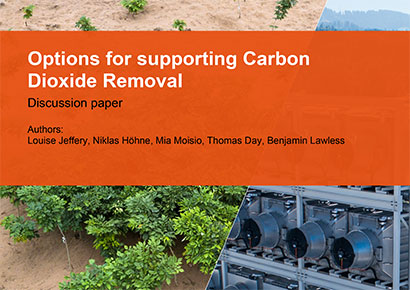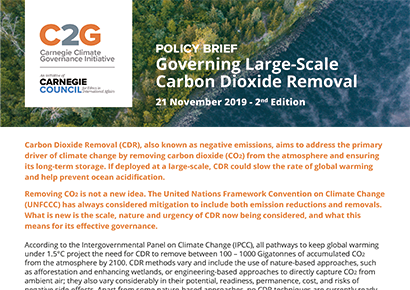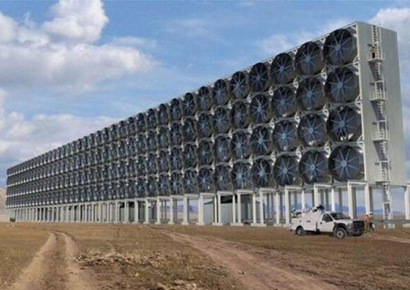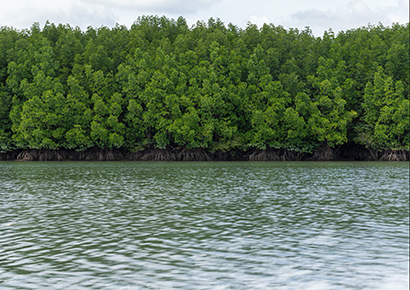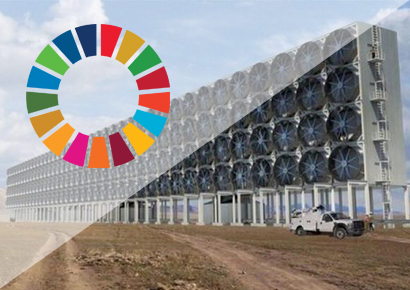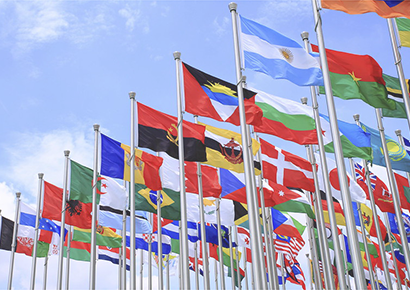C2GLearn
Catalysing large-scale
Carbon Dioxide Removal
This topic aims to identify and discuss options for market and policy mechanisms to catalyse the deployment of large-scale Carbon Dioxide Removal (CDR) to reach the objectives of the Paris Agreement.
Webinars
This Webinar will feature two fifteen-minute expert overviews of catalysing large-scale Carbon Dioxide Removal, and the governance challenges it raises. It will be followed by a half hour moderated Q&A session, during which audience members will be invited to submit written questions via the Zoom chat. Speakers include:
Louise Jeffery / United Kingdom
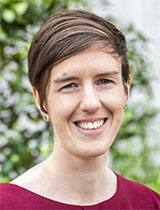
Louise is trained in Earth and Environmental Sciences and chose to apply her scientific training to the challenge of climate change. At the Potsdam Institute for Climate Impact Research (PIK) she developed tools for equity analysis, evaluated country pledges, and developed approaches for assessing global progress on mitigation.
Louise holds a B.Sc. and M.Sci. from the University of Cambridge (Geology) and a Ph.D. from the University of Michigan (Earth and Environmental Sciences). She joined NewClimate Institute in June 2019 and is based in the Berlin office.
Niklas Höhne / Germany
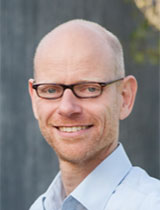
Moderator: Kai-Uwe Barani Schmidt / Germany
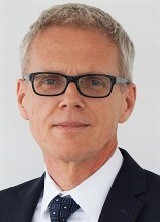
As a senior member of the secretary-general’s Climate Change Support Team, Schmidt contributed to the coordination of the global climate change summit in 2009 and was part of the secretary-general’s team at UNFCCC negotiations in Copenhagen. In the lead-up to and during the landmark Paris climate change agreement in 2015, he led the team’s work on the global climate action agenda, initiated by the secretary-general at his 2014 summit, that mobilized thousands of companies, hundreds of cities, and sub-national authorities in collaboration with governments, the UN, IGOs, and NGOs.
Over the last few years, Schmidt has contributed to the launch of the Initiative for Climate Action Transparency (ICAT). This initiative aims to build a best practice for guidance, tools, and capacity of governments and sub-national authorities to measure the effects of their policies with regard to climate change and the other UN SDGs and report progress publicly, thus fostering greater transparency, effectiveness, and trust, enabling innovative financing and ambition in climate policies worldwide.
Schmidt’s experience has covered public policy design, regulatory design, and implementation of global emissions trading and offset instruments. He has coordinated high-level events, navigating the interface of international negotiations with private sector, intergovernmental, and non-governmental organizations focusing on private sector engagement in climate change and development action at international, national, sub-national, city, and company/NGO levels. In addition, Schmidt’s experience has covered institutional build-up and management of both resources and people.
Introduction
Presentations
Slide presentation
- Louise Jeffery and Niklas Höhne Catalysing large-scale CO2 removal [pdf]
Q&A (Webinar 1)
Q&A (Webinar 2)
Campfire Chat
This Campfire Chat aims to provide insights into diverse viewpoints on catalysing large-scale carbon dioxide removal (presented in the webinar above), in a relatively informal, moderated, semi-structured discussion between experts. Audience members are invited to suggest topics via the Zoom chat. Guests include:
Louise Jeffery / United Kingdom

Louise is trained in Earth and Environmental Sciences and chose to apply her scientific training to the challenge of climate change. At the Potsdam Institute for Climate Impact Research (PIK) she developed tools for equity analysis, evaluated country pledges, and developed approaches for assessing global progress on mitigation.
Louise holds a B.Sc. and M.Sci. from the University of Cambridge (Geology) and a Ph.D. from the University of Michigan (Earth and Environmental Sciences). She joined NewClimate Institute in June 2019 and is based in the Berlin office.
Jason Eis / United States of America
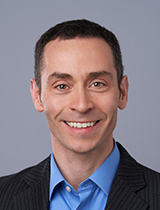
Artur Runge-Metzger / Germany
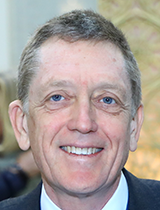
He took up his current position on 1 January 2016. The current directorate covers international and EU climate strategy and economic assessment and evaluation, EU domestic legislative initiatives related to households, land transport, waste, agriculture and forestry, carbon capture, use and storage, financial instruments for EU innovation, monitoring, reporting, and verification.
Since 1 September 2003, he was first Head of Unit, and since 2009 Director focussing on international and domestic climate strategy, international climate change negotiations, climate finance, land use and monitoring and reporting. During this time he was one of the EU lead negotiators, Vice-President of the UNFCCC Bureau in 2010-2012, and also co-chair of the Ad Hoc Working Group on the Durban Platform for Enhanced Action (ADP) in 2013/14 preparing the Paris Agreement.
Before this, he spent two years as Head of Operations in the EC Delegation to Bosnia and Herzegovina in Sarajevo.
From the end of 1997 until 2001, he worked in DG Development and DG Environment in Brussels on a wide range of environmental issues, particularly climate change in developing countries.
He joined the European Commission in 1993, when he was first responsible for the bilateral co-operation covering agricultural policies, rural development and the environment in the EC Delegation in Zimbabwe in Harare.
After his University education, he started his professional career at the University of Göttingen, Germany in 1985. His main scientific and lecturing topics were natural resources economics and development economics, including extensive field research in rural West Africa.
He holds a doctoral degree in agricultural economics.
Mark Workman / United Kingdom
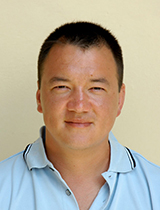
He is a Coastal Engineer (University of Southampton), Military (Queens Gurkha Engineers) and Business Leader (Medical and Security Consultancy), Environmental Economist, Academic (Imperial College London) and Strategist by training. He has undertaken military tours, led extreme and high-risk expeditions all over the world and run multi-million dollar business units.
As a visiting researcher at Imperial College London, Mark is developing specialisations around: resource systems, energy transitions, environmental and climate change, violent conflict and the processes of decision making under uncertainty.
Janos Pasztor / Hungary & Switzerland (Moderator)
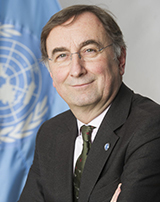
He has four decades of work experience in the areas of energy, environment, climate change, and sustainable development. Before taking up his current assignment he was UN Assistant Secretary-General for Climate Change in New York under Secretary-General Ban Ki-moon.
Earlier, he was Acting Executive Director for Conservation (2014), and Policy and Science Director (2012-2014), at WWF International. He directed the UNSG’s Climate Change Support Team (2008-2010) and later was Executive Secretary of the UNSG’s High-level Panel on Global Sustainability (2010-2012). In 2007 he directed the Geneva-based UN Environment Management Group (EMG). During 1993-2006 he worked and over time held many responsibilities at the Climate Change Secretariat (UNFCCC), initially in Geneva and later in Bonn.
His other assignments included: the Secretariat of the UN Conference on Environment and Development (Earth Summit ’92); Stockholm Environment Institute; United Nations Environment Programme (UNEP); Secretariat of the World Commission on Environment and Development (Brundtland Commission); the Beijer Institute; and the World Council of Churches.
He has BSc and MSc degrees from the Massachusetts Institute of Technology (MIT).
C2G strives to achieve a diversity of views and backgrounds across all its events. To that end, it is always open to feedback and suggestions regarding future participants and topics, to ensure a range of perspectives by sector, gender, race, geography, age and other dimensions. It will not always achieve the necessary diversity in all circumstances due to issues of availability and familiarity, but aims over time to expand the range of contributors able to address its issues, subject to the broad principles outlined in its mission statement.
